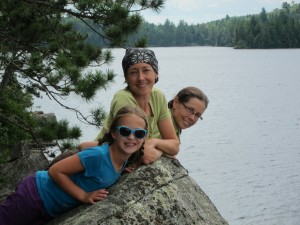This year, I resolve to make my words matter.
“What?” you say, cocking an eyebrow. “You’re a writer. Words are your thing.”
Yes. I am a writer. I write pretty much every weekday, rolling around in words like a puppy in a laundry pile. I struggle to find the right words to build worlds my readers can believe in. In each book, whether fiction or nonfiction, I strive to tell “true” stories.

It’s a perfect job for an introvert like me, defined, as Susan Cain does in QUIET: THE POWER OF INTROVERTS IN A WORLD THAT CAN’T STOP TALKING, as a person who prefers low stimulation environments. Give me a park over a mall, a dinner with friends over a kegger. My happy place is unplugged, in the wilderness, with people I love.
So why is it that time and time again during my writing day, I turn to Twitter and Facebook for that uniquely extroverted cacophony that is social media?
“Is this a hate on Twitter blog post?” you ask.
No. Actually, I love Twitter. I use it for work. As the published member liaison for the Society of Children’s Book Writers and Illustrators in Oregon, I use Twitter (at both @amberjkeyser and @SCBWIOregon) to promote our members books and events . I also try to spread the word about interesting opportunities and information for writers.
But I also turn to Twitter and Facebook for connection. Sometimes real conversations ensue (like a recent one with Olivia Croom on what constitutes a “challenging” read for adults), and I’ve built genuine friendships that started on Twitter and extended into real life. What would I do without @kiersi, @quickmissive, @heidi_schulz, and @teribrownwrites?
Sometimes though, I log into social media feeling a little desperate, wanting someone, anyone to reach out to me. That rushing stream of over-stimulating snippets washes over me, and I’m left feeling like I did at 16 flipping through a copy of Vogue Magazine, lumpy, unfashionable, and definitely left out of the conversation.
In short, overwhelmed.
“Oh, you introvert you!”
Exactly! But the article (which of course I found on my Twitter feed) that really spurred this blog post is by Luke O’Neil and came out on Esquire.com. Click through and read THE YEAR WE BROKE THE INTERNET: AN EXPLANATION, AN APOLOGY, A PLEA. O’Neil’s thesis is that what he calls “Big Viral” is killing journalism.
As our information gathering moves online, we have to swim in this great, gushing mess. The “news” portals that dominate are the ones that generate the most click-throughs. These new media outlets need their headlines to go viral. As O’Neil, a journalist guilty himself of feeding this beast, points out:
“You don’t need to write anymore–just write a good headline and point. If what you’re pointing at turns out to be a steaming turd, well, then repackage the steam and sell it back to us.”
He illustrates this point with the “news” stories that went viral and turned out to be bogus (e.g. snow on the Sphinx, Samsung paying Apple $1 billion in nickels, etc).
“Uh, Amber?” you say. “Where are you going with this?”
I read this this article and thought Oh, shit, I’m part of the problem. I’ve clicked on those links to celebrity side boobs. I’ve wandered in the morass of BuzzFeed and UpWorthy. I’ve “shared” and “liked” in a millisecond.
I don’t want to be part of the problem. I want my words to matter, and I want them to further connections with real humans.
Last night, my family was eating out at one of our favorite restaurants (The Rendezvous Grill in Welches, btw), and I was telling them about an interview I’d read by Megan Garber with Sherry Turkle, an MIT psychologist, who has written ALONE TOGETHER: WHY WE EXPECT MORE FROM TECHNOLOGY AND LESS FROM EACH OTHER and is working on a follow-up book called RECLAIMING CONVERSATION. My son pointed out a couple across the room sitting together and staring into their iPhones. Alone together.
In the article, Garber writes:
“The conclusion [Turkle has] arrived at while researching her new book is not, technically, that we’re not talking to each other. We’re talking all the time, in person as well as in texts, in emails, over the phone, on Facebook and Twitter. The world is more talkative now, in many ways, than it’s ever been. The problem, Turkle argues, is that all of this talk can come at the expense of conversation. We’re talking at each other rather than with each other.”“So what are you going to do about?”
I’m not planning on turning into a rogue, anti-technology hermit, but I am resolving not to be part of the problem. No more side boob links. No more sharing things from viral sites. Instead, I’ll take time to think before I “share.” I will continue to post and tweet good reporting and spread the word about opportunities that will help my fellow creatives, and perhaps most importantly, I’m going to focus on online interactions that build connections and could help us to “reclaim conversation.”
Are you with me?